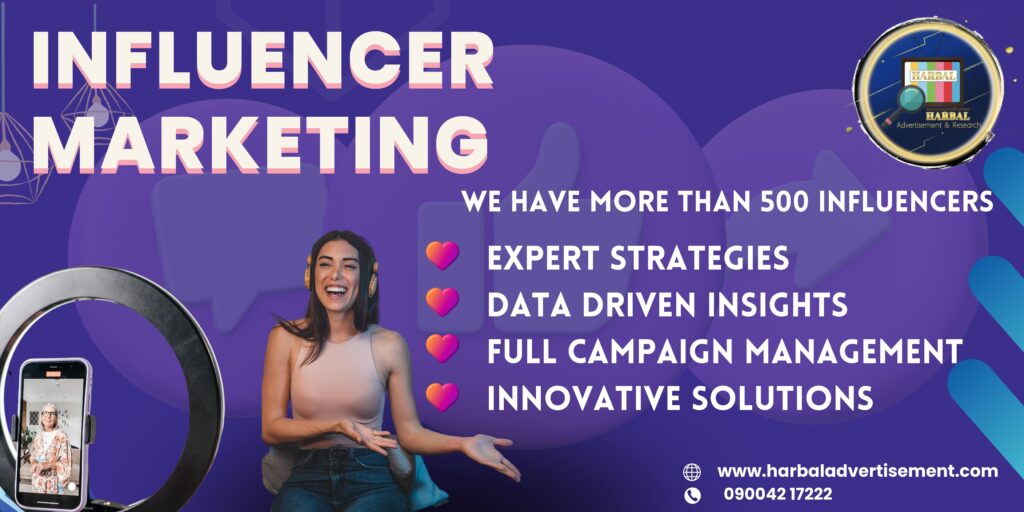Social media influencers | Authentic content | Digital advertising trends | Brand partnerships | Targeted marketing strategies | Measuring ROI in influencer marketing | Influencer engagement rates | Trustworthy endorsements | Content variety in campaigns | Global reach through influencers | Peer recommendations in marketing | FOMO marketing tactics | Storytelling in advertising | Creative influencer collaborations | Long-term influencer relationships | Cultural relevance in marketing | Micro-influencers | Influencer marketing success stories | Influencer marketing platforms | Influencer marketing case studies

Influencer marketing has become a dominant force in the world of digital advertising and brand promotion, and its popularity continues to grow exponentially. This trend can be attributed to several key factors that have converged to create the perfect storm for influencer marketing’s success in recent years. In this essay, we will explore the reasons behind the surge in influencer marketing and the impact it has had on the advertising landscape. Rise of Social Media: The rapid proliferation of social media platforms like Instagram, YouTube, TikTok, and Facebook has given birth to a new generation of content creators, known as influencers. These platforms have enabled individuals to share their lives, interests, and expertise with a global audience, providing a fertile ground for influencer marketing to flourish. Authenticity and Trust: One of the main reasons for the popularity of influencer marketing is the trust and authenticity associated with influencers. Audiences often perceive influencers as more relatable and genuine compared to traditional celebrities or corporate brands. This trust factor makes it easier for influencers to sway their followers’ opinions and purchasing decisions. Decline of Traditional Advertising: Traditional advertising methods, such as TV commercials and print ads, have seen a decline in effectiveness. Consumers are increasingly tuning out or skipping these ads, and ad-blockers are on the rise. Influencer marketing offers a more engaging and non-intrusive way to reach consumers, which makes it more appealing to brands. Targeted Reach: Influencers often have highly specialized niches or demographics within their followers. Brands can partner with influencers whose audience aligns closely with their target demographic, allowing for highly targeted marketing campaigns. This precision is often challenging to achieve through traditional advertising channels. Content Creation: Influencers are experts in creating engaging and compelling content. They know what resonates with their audience and can tailor their content to fit a brand’s message seamlessly. This results in content that is not only entertaining but also persuasive, effectively promoting the brand or product in a more natural way. Measurable ROI: Digital marketing allows for precise tracking and measurement of the impact of influencer campaigns. Brands can monitor metrics such as engagement rates, click-through rates, conversion rates, and more. This data-driven approach enables them to fine-tune their campaigns for maximum return on investment. Cost-Effective: Compared to traditional advertising, influencer marketing often offers a more cost-effective solution. While partnering with high-profile influencers can be expensive, there are countless micro-influencers with smaller but highly engaged audiences who can be more budget-friendly options for brands. Content Variety: Influencer marketing provides a wide range of content formats, from product reviews and unboxings to tutorials and behind-the-scenes glimpses. This versatility allows brands to experiment with different approaches and find the one that resonates best with their target audience. Global Reach: The internet has no geographical boundaries, and influencers can have followers from all over the world. This global reach opens up new markets and opportunities for brands looking to expand their customer base internationally. Peer Recommendations: People tend to trust recommendations from their peers more than advertisements from companies. Influencers often feel like friends or trusted advisors to their followers, making their endorsements highly influential. Evolving Algorithms: Social media platforms are continually evolving their algorithms, making it harder for brands to gain organic visibility. Influencer marketing offers a workaround by leveraging the influencer’s established presence and reach to get content in front of a broader audience. FOMO (Fear of Missing Out): Influencers often showcase exclusive experiences, products, or deals, creating a sense of FOMO among their followers. This fear of missing out drives engagement and encourages consumers to act quickly, benefiting the brands they endorse. Storytelling: Influencers are skilled storytellers who can weave a brand’s message seamlessly into their narratives. This storytelling approach makes marketing content more compelling and less like a traditional ad. Innovation and Creativity: Influencers are known for their innovative and creative approach to content creation. Brands can tap into this creativity to develop unique and memorable campaigns that stand out in a crowded digital landscape. Long-Term Relationships: Many brands are now opting for long-term partnerships with influencers, as this can lead to more authentic and consistent brand promotion. These ongoing relationships help build brand loyalty among the influencer’s audience. Cultural Relevance: Influencers are often at the forefront of pop culture, trends, and societal issues. Partnering with them can help brands stay culturally relevant and resonate with younger generations who are particularly attuned to these trends. In conclusion, influencer marketing has risen to prominence due to a combination of technological advancements, changing consumer preferences, and the unique qualities that influencers bring to the table. It offers a more authentic, targeted, and cost-effective way for brands to connect with their audience. As long as social media continues to be a dominant force in our lives, influencer marketing is likely to remain a trend with staying power in the world of advertising. Brands that embrace this strategy effectively stand to benefit from increased brand visibility, engagement, and ultimately, sales.


